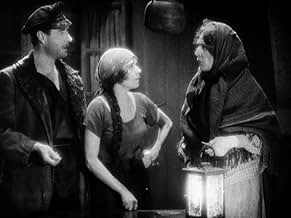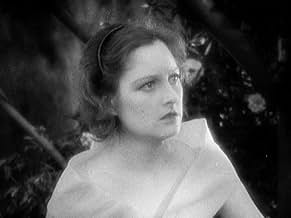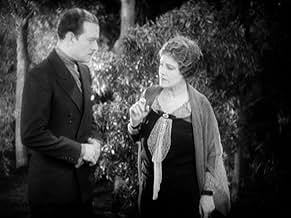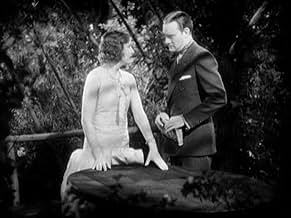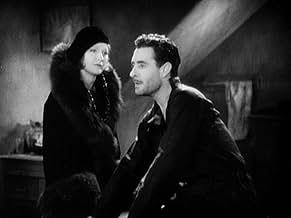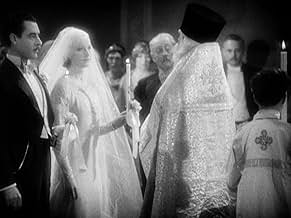Fedya wins Lisa away from her fiance, Victor Karenin. But after Fedya weds Lisa, he becomes infatuated with a gypsy girl, Masha. His duplicity leads to tragedy.Fedya wins Lisa away from her fiance, Victor Karenin. But after Fedya weds Lisa, he becomes infatuated with a gypsy girl, Masha. His duplicity leads to tragedy.Fedya wins Lisa away from her fiance, Victor Karenin. But after Fedya weds Lisa, he becomes infatuated with a gypsy girl, Masha. His duplicity leads to tragedy.
George Spelvin
- Magistrate
- (scenes deleted)
Richard Alexander
- Policeman
- (as Dick Alexander)
Charles Quatermaine
- Artimiev
- (scenes deleted)
Agostino Borgato
- Petushkov
- (scenes deleted)
Max Barwyn
- Trial Attendee
- (uncredited)
Stanley Blystone
- Undetermined Secondary Role
- (uncredited)
Geraldine Dvorak
- Anna Pavlovna's Maid
- (uncredited)
Storyline
Did you know
- TriviaJohn Gilbert loathed the film and begged for it not to be released. His wishes were not granted. Instead the film was shelved and was released after His Glorious Night (1929), which had been filmed after "Redemption" was already finished.
- ConnectionsFeatured in Hollywood (1980)
Featured review
An irresponsible gambler, having destroyed the happiness of those dearest to him, seeks REDEMPTION in suicide.
According to cinematic legend, all the talkie MGM films starring John Gilbert were dreadful - the result of a bitter hatred between Gilbert (the highest paid star in Hollywood, with a $1.5 million contract) & studio boss Louis B. Mayer. A determination on Gilbert's part to fulfill the contract, and a campaign instituted by Mayer to destroy Gilbert's career including spreading the rumor that Gilbert's voice was 'high & feminine', culminated in several unwatchable movies.
Not entirely true. The Studio had a huge financial investment in Jack Gilbert and was not going to completely cut its own throat by showcasing him in nothing but dreck. However, of the 8 MGM talkies in which he appeared as solo star (1929 - HIS GLORIOUS NIGHT; 1930 - REDEMPTION; WAY FOR A SAILOR; 1931 - GENTLEMAN'S FATE; THE PHANTOM OF Paris; WEST OF Broadway; 1932 - DOWNSTAIRS; 1933 - FAST WORKERS) most were certainly rather ghastly.
Although released after HIS GLORIOUS NIGHT, REDEMPTION was Gilbert's first foray into talking pictures. He hated the film and begged the Studio not to release it, fearful of what it might do to his career. But release it they did, and coming after the atrocious reception of HIS GLORIOUS NIGHT, Gilbert's career was struck a mortal blow.
One of the main problems with REDEMPTION, aside from the turgid dialogue and dreadful editing, is that it is a depressing story, with wretchedly unhappy characters. This may have worked fine in Tolstoy's original novel (The Living Corpse), but for the cinema, especially dealing with the new difficulties engendered by sound, a morbid story line was deadly. To make matters worse, Gilbert tended to deliver his lines in a sing-song manner, which made them sound silly. Only in the Easter Monday Night scene does he get a few moments to show what he was capable of artistically.
The rest of the cast, Conrad Nagel, Eleanor Boardman & Renée Adorée, are also defeated by the film, although they speak their lines more naturalistically than Gilbert. The existing print of the film seems about 10 minutes short and what appears to be missing, based on Gilbert's final lines, would be the death of Adorée's character. (Movie mavens will recognize, in an uncredited role, silent comic Mack Swain playing an unfriendly Russian judge.)
Finally, about The Voice. There was nothing at all strange or unnaturally high about Gilbert's voice. As a matter of fact, it was of medium range & rather cultured & refined. Which was the crux of the problem, of course. While it is possible that no voice could have ever matched the perfect one viewers heard in their minds while watching his strong, virile silent roles, the reality was very different from what they wanted to hear (imagine Robert Montgomery's voice coming out of Clark Gable's mouth.) Gilbert was doomed from his first scene in his debut talkie; his war with Mayer only intensified the agony. John Gilbert would die in 1936, forgotten by most of his former fans, at the age of only 36.
According to cinematic legend, all the talkie MGM films starring John Gilbert were dreadful - the result of a bitter hatred between Gilbert (the highest paid star in Hollywood, with a $1.5 million contract) & studio boss Louis B. Mayer. A determination on Gilbert's part to fulfill the contract, and a campaign instituted by Mayer to destroy Gilbert's career including spreading the rumor that Gilbert's voice was 'high & feminine', culminated in several unwatchable movies.
Not entirely true. The Studio had a huge financial investment in Jack Gilbert and was not going to completely cut its own throat by showcasing him in nothing but dreck. However, of the 8 MGM talkies in which he appeared as solo star (1929 - HIS GLORIOUS NIGHT; 1930 - REDEMPTION; WAY FOR A SAILOR; 1931 - GENTLEMAN'S FATE; THE PHANTOM OF Paris; WEST OF Broadway; 1932 - DOWNSTAIRS; 1933 - FAST WORKERS) most were certainly rather ghastly.
Although released after HIS GLORIOUS NIGHT, REDEMPTION was Gilbert's first foray into talking pictures. He hated the film and begged the Studio not to release it, fearful of what it might do to his career. But release it they did, and coming after the atrocious reception of HIS GLORIOUS NIGHT, Gilbert's career was struck a mortal blow.
One of the main problems with REDEMPTION, aside from the turgid dialogue and dreadful editing, is that it is a depressing story, with wretchedly unhappy characters. This may have worked fine in Tolstoy's original novel (The Living Corpse), but for the cinema, especially dealing with the new difficulties engendered by sound, a morbid story line was deadly. To make matters worse, Gilbert tended to deliver his lines in a sing-song manner, which made them sound silly. Only in the Easter Monday Night scene does he get a few moments to show what he was capable of artistically.
The rest of the cast, Conrad Nagel, Eleanor Boardman & Renée Adorée, are also defeated by the film, although they speak their lines more naturalistically than Gilbert. The existing print of the film seems about 10 minutes short and what appears to be missing, based on Gilbert's final lines, would be the death of Adorée's character. (Movie mavens will recognize, in an uncredited role, silent comic Mack Swain playing an unfriendly Russian judge.)
Finally, about The Voice. There was nothing at all strange or unnaturally high about Gilbert's voice. As a matter of fact, it was of medium range & rather cultured & refined. Which was the crux of the problem, of course. While it is possible that no voice could have ever matched the perfect one viewers heard in their minds while watching his strong, virile silent roles, the reality was very different from what they wanted to hear (imagine Robert Montgomery's voice coming out of Clark Gable's mouth.) Gilbert was doomed from his first scene in his debut talkie; his war with Mayer only intensified the agony. John Gilbert would die in 1936, forgotten by most of his former fans, at the age of only 36.
- Ron Oliver
- Dec 20, 2000
- Permalink
Details
- Release date
- Country of origin
- Languages
- Also known as
- S one strane života
- Filming locations
- Production company
- See more company credits at IMDbPro
- Runtime1 hour 15 minutes
- Color
- Sound mix
Contribute to this page
Suggest an edit or add missing content


